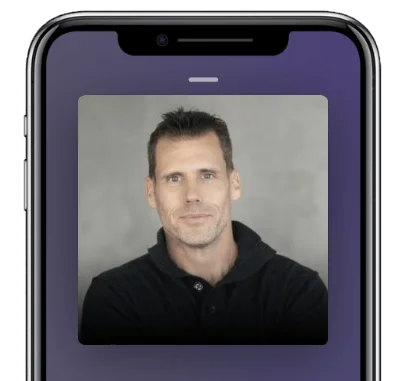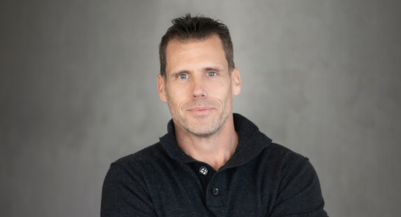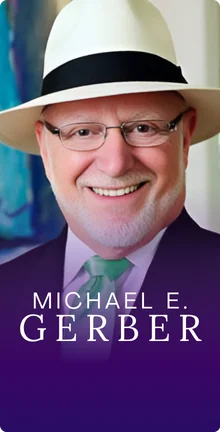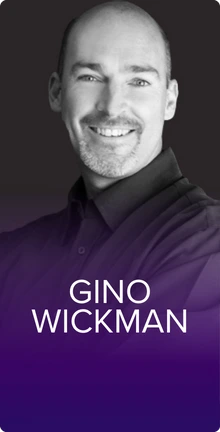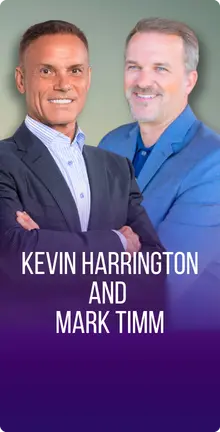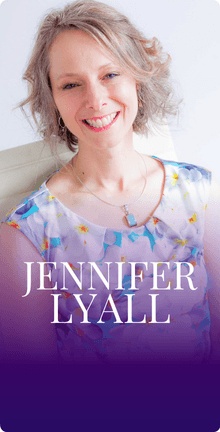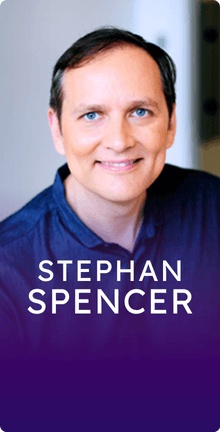In this Episode
- [01:53]Stephan welcomes Ryan Crownholm and shares where they know each other from. Ryan shares a transformative moment in his personal and entrepreneurial journey.
- [06:54]Ryan reflects on his biggest epiphany after a near-death experience.
- [14:32]Ryan explains a portion of his book, The Hustle Trap. He also describes the radical accountability he has embraced in his life and business.
- [21:16]Ryan talks about some of the metrics he tracks to improve his overall health.
- [28:39]Ryan reveals one of his journaling epiphanies. He and Stephan discuss their roles as fathers to their children.
- [37:49]Ryan imparts an important lesson to us.
- [46:41]Stephan asks Ryan what made him choose to volunteer with Defy Ventures.
Ryan, it’s so great to have you on the show.
It’s great to be here, Stephan. It’s great to see your face.
We know each other from the Genius Network, which is Joe Polish’s mastermind. I don’t even know if mastermind is the right word. I know Joe would argue that he doesn’t like that word, but it is a family, I think. It’s not just a network. It’s not just a brotherhood and sisterhood. It is soul family to me.
Me too, my family and friends. Their business park seems to get smaller and smaller as the years go on.
Joe’s been a great guest on this podcast and my other show, Marketing Speak. He’s a phenomenal human, a wonderful soul. It’s because of him that we know each other.
That’s right. Well, we have a few other connections from the past from Los Angeles.
From M.E.T.A.L—another mastermind that we have in common. Tian Mu, who was also a past guest on this podcast, is another amazing human. So great to have you on. Now, I’d love it if we start with your origin story of what happened to you, for you, through you, by you, and how powerful that story is. It just blew my mind. I know you shared a ten-minute talk with Genius Network about what happened, the lessons, and the gifts that you got out of it, but let’s start there.
Talking about what was a transformative moment for me, which really boils down to an act of stupidity, of a runaway truck rolling down a hill that I couldn’t get out of the way of. It was a one-ton dually crew cab pulling a 10,000-pound trailer. It was early morning, getting the guys going on a construction site. I looked up and saw it coming towards me, and my legs buckled, and I went right down in front of it. That truck crushed me, ran me over, and drugged me down the street until it ran into another car and jackknifed.
When we stop blaming others and take full responsibility, we empower ourselves to fix problems and prevent them from recurring. Share on XI pulled myself out from underneath that truck to a pretty horrific site. It’s sort of a bloody mess that I won’t get into. But it ended up putting me into trauma surgery for about 12 hours and six surgeries over two years. The unfortunate part, which turned out to be probably fortunate, was that I was a very involved business owner, as many people are. You are starting a business; you think that you’re the most important thing there, and you have to be everywhere doing everything.
I went from being a very physically capable person—I’m an ex-military guy. I had been running a demolition in a general engineering company for a lot of years—from being in a wheelchair in a hospital bed. I thought for sure that I would lose my business. And as it turns out, I just had to reframe the way that I did things. I just got behind the computer and started running my business from a different level than I ever had before. That has reflected itself in many other businesses since then. I’ve started them since then and transformed that business into a powerhouse that I was able to sell seven years after that accident.
Besides the business side of things, it was also a pretty big awakening. I guess I would almost wish a near-death experience on everybody because it really makes you reevaluate how you live your life and the kind of people that I was surrounding myself with where I was sacrificing for things and where I could improve. As soon as I was able to really sit back and start adjusting to those things, my life completely changed. I know you’ve been through some life-changing experiences yourself, which really resonated with me during our conversations.
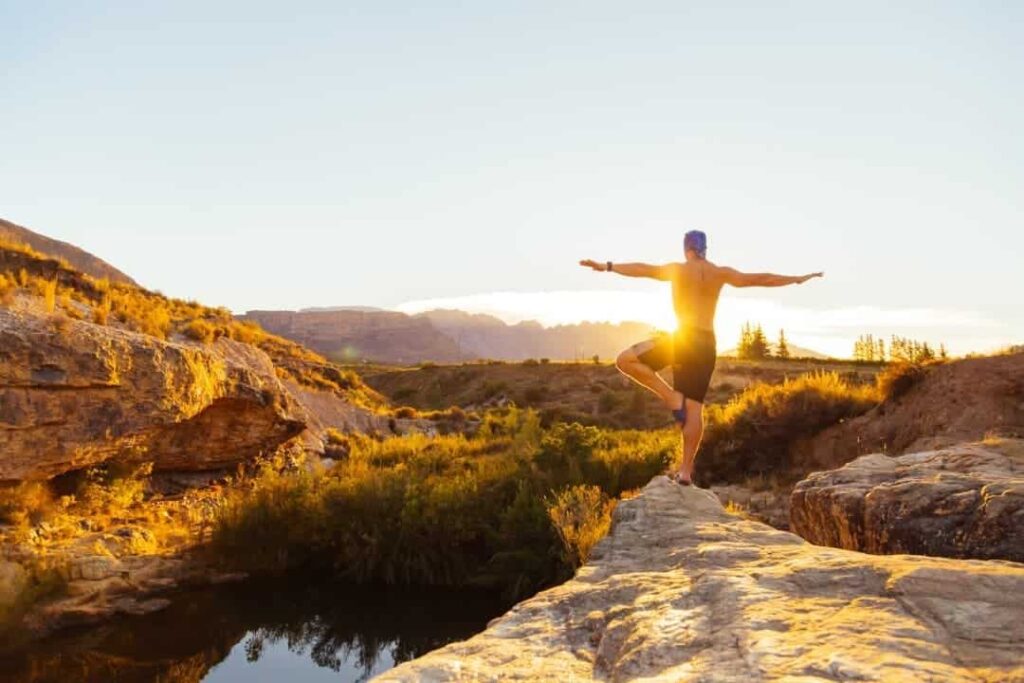
That’s my origin story. Besides that, I no longer do things on the ground. In construction, I had big trucks, heavy equipment, tractors, etc. Now, I do more construction technology. I’ve got two businesses I run. One is called DirtMatch, which is an online dirt exchange. Another one is my site plan, which is where we help people with drafting for construction projects. Then, I invest in some other construction-related things and do some. Some construction projects are flipping homes and things on the side just for fun, just because I like to get my hands dirty. But that’s the sum of it.
You just recently exited another business from memory, didn’t you?
That was 2014. I sold my general engineering company, and since then, I’ve started a couple more businesses, which were kind of spin-offs. They were really efficient systems that I had built into my last company, which, on their own, turned out to be pretty good companies. But like many people in the Genius Network, all of us kind of have our hands in a lot of different things.
I’ve got my hands in a lot. It’s actually the reason why I wrote this book, The Hustle Trap, to help people streamline their businesses so that they have time to play around with things and focus on the things that are really important in their lives. But the most important to me is my family. I have a wife, a 13-year-old and a 3-year-old at home. I like to spend a lot of time with them, and if I was tied up in my business, I wouldn’t be able to do that. Those are moments that I can’t recapture.
What would be the biggest epiphany or insight that you got from the near-death experience, the accident and the recovery that whole journey?
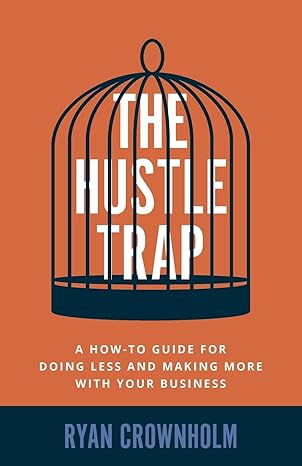
I’ll say that I probably didn’t have enough faith in my people. I had hired good people, and I knew they were good, but I thought they needed me. I was surprised when I was suddenly in a hospital bed, thinking, “Oh, boy, no one’s going to have any idea what to do. They’re just going to be running in the field crazy,” and they just snapped into it and took care of everything. I think that they actually functioned better without me. That was a really big epiphany in business for me, as I was probably getting in the way, and I don’t think I would have seen that any other way.
How long did your recovery take?
It was two years. I had a lot of different surgeries, including rods and skid grafts, bone grafts, and. Yeah, so there was quite a bit. But I was back at work, you know, as soon as I could get on my feet, I started getting back, at least to the office or having some sort of presence, but it took some time. It took me maybe a couple of months or so before I was able to sort of be mobile again. But I was on a walker for quite a while, a cane for quite a while after that, and a pretty big limp as well. And so it was a process.
The limp is gone now, right?
I’d say I’m 95%. As long as I stay lean and stay strong, I feel good. But if I let myself go, I’m in a lot of pain, so I got to take care of myself, it’s a good thing.
What were some of the biggest modalities or tools or, I don’t know, practices that made the difference in terms of pain management and amelioration as far as kind of getting your mind right through this so that you were thinking positively and with hope and gratitude rather than a negative loop in your head. What were some of the physical therapy-type tools and technologies that you used? Just tell us your favorite systems, processes, and things.
The initial was panic. I was living very much in the physical world, and my physicality was everything. I was a runner. I was out swinging sledgehammers with the guys. It was something I took great pride in losing, and suddenly, I went, “Oh, well, that was my strength.” All of us as entrepreneurs sort of leverage our unique abilities into a business. When I got out of the military, I was in the army, and I was in air defense. I fired Stinger missiles at airplanes. When you come out of trying to find a job like that, nobody’s looking for that, but I am strong, so I leverage that.
All of us, as entrepreneurs, leverage our unique abilities into a business.
I guess I had to dig deep and try to find what else I had at that point. I had grown a pretty good-sized company, so there were some other skills that maybe I had been ignoring. Apparently, turned out I was really good at systems, so I started integrating systems to organize my business with feedback loops and everything else. So, the things that were happening in the field were going to align with the company’s mission, my mission, and my employees’ mission, satisfy the clients, and make sure that they were all functioning really well together.
Those systems became very, very important to me. I think I’m more of a systems engineer now than I ever was before. I think I’ve learned to be exceptionally good at hiring people and getting the right people in the company to make sure that they’re representing me in a way that I want to be represented. That’s another strength that I realized. Overall, I think the same things happened in my life. I’ve learned to take care of my health in a new way. I’ve learned to love in a new way, to embrace the people around me, understand that life is finite.
Any day can be your last. I had that tested again last year when I had a diagnosis of cancer, and I had a sort of freak thing. I went in and had a scan. It turned out that I had a great big cancerous tumor on my kidney, and so I had to have my cancer removed. Had I not found out that my doctor is pretty confident, it would have ended badly for me another year later.
Once again, it was another opportunity for me to reevaluate my life and kind of see things where things stand. The accident happened on July 3, 2007. I call that my life day. I take that as a day every year when I just sit down and evaluate where things are at. “Am I living in a way that I would be proud of if tomorrow was my last day?” That’s been really powerful for me.
It's the small, consistent improvements in daily habits that make the most significant impact, not drastic changes. Share on XYou said it was almost like a fluke that you found this cancer in your kidney. What were the circumstances of that like? That sounds like a synchronicity or some sort of divine orchestration from above.
Someone was looking out for me, for sure. Actually, my favorite aunt, who I love dearly, had passed away maybe six months before that. And I want to say that maybe she kind of compelled me. I’d been going down this health hacking path where I’d been doing a lot of different things to examine my health and my diet ever since COVID. I didn’t know what that was. And so I thought, “Well, whatever it is, I know that if I have a better immune system, I’ll be more resistant to it.” I just started trying to do things to improve my health.
I was hiking every day and eating better food, and I dropped some weight, and then I kind of just kept that going. I started getting the constant glucose monitor, and I did several metrics and tracking, which are kind of the same tracking mechanisms that I’d used for my business over the years. I just applied it to myself, and I came across this scan. I heard about it on a podcast; it’s called a Prenuvo scan, which is a full-body MRI, a high-definition scan that uses AI and other things. I thought it sounded interesting, so I signed up for it and went in.
It was actually one of the first people in Los Angeles to do the scan they just opened. So I thought, “Well, that’s probably worthwhile if there’s something I’ve missed with all my other blood testing and all the other optimization that I’m doing.” And I was more concerned that maybe it’d be like an aneurysm or something else that was in there because I don’t have any history of cancer. When my doctor called me really frantically, like, “Hey, you’ve got a great big tumor on your kidney,” it really caught me off guard.
I was in a position where I said, “Well, I guess we should do a biopsy to make sure it’s cancerous.” The doctor said, “If you do a biopsy, you could release those cancer cells. Even if it’s just a tumor, you got to take it out.” I had to take my kidney out, not knowing whether or not it was a cancerous tumor. So I went and had the surgery, and sure enough, it was stage three cancer when they took it out, and it was quite advanced, but it hadn’t yet metastasized or gotten into the veins, but it was encroaching on them, so it was quite close. That was certainly divine intervention. Being 47 years old, not having any symptoms whatsoever, and just on the way to listening to a podcast and paying $2,500 to do something, I was pretty lucky.
I don’t believe in luck. I believe everything is orchestrated, and if you get a fortunate event, it wasn’t just some random chance.
It’s really easy when you just complain and blame it on someone else; you just defer it, and then the same thing can happen over and over again.
I’m 100% sure my Aunt Lori was up there somehow prodding me to get this test done because she passed away at 80. She’s 82 years old. But she had dealt with some cancer in her life. I think she had her hand in it for sure.
You had something in your book that jumped out at me. I have the Kindle version of The Hustle Trap, and it’s a section in part one. The title of that section is It’s Your Fault Even If It’s Not. Can you speak to that? That sounds a little counterintuitive.
As a young entrepreneur, I used to get so upset with employees, vendors, and everybody who would do things because our crews were out and about, and I’d hear about a truck crashing into a house or issues with job sites. AI would always kind of blame it on that person, and I’d go home and I’d complain to my wife this or that. One day, somebody just said, “Well, really, it’s your fault. You hired that person, or you didn’t maintain your truck well enough, and that’s why the engine blew up.”
Once I realized that I could reframe everything that happened in my life as my fault, it empowered me to fix those things. Because it’s really easy when you just complain and blame it on someone else, you just defer it, and then the same thing can happen over and over again. But if you own it and say, “Well, how did I end up hiring this person working for me? What could I do? And maybe I could have taken a little bit more care.”
Maybe he shouldn’t be working for me anymore, and therefore, I should create better systems around betting people when I bring them on board. So every time one of these things happened that used just to make me pull my hair out and scream at the top of my lungs, I could now look as an opportunity to create a system so it wouldn’t happen again. This has been incredibly powerful in all parts of my life, particularly in my business case.
Can you walk us through some of the radical accountability, 100% responsibility-type things that you’ve done in your life and businesses to exemplify this concept?
I think the hiring process is certainly one of them. But I have two kids, so if my twelve-year-old does something that upsets me, I have to remember I’m 100% responsible for raising that human being. I need to take a hard look at myself—where I fail, try to correct it, and create a system. I had conversations with him and just said, “Hey, I know that you did this, and perhaps I didn’t lay the framework for you to understand why that was wrong. But let’s discuss it now because now we’re empowered.”
You think that if “everything’s my fault,” then that sounds really heavy, but it’s actually quite the other way around. You can actually just start to fix things, and it’s powerful.
I can do that in a lot of different parts of my life. Even an argument with my wife, how can I own it? So, as I just do, it makes life easier. It’s really counterintuitive. You think that if everything’s my fault, then that sounds really heavy, but it’s actually quite the other way around. It’s like once you do it, you can actually just start to fix things, and it’s powerful.
What’s something that you fixed that you find that most people don’t fix?
I fixed it. My health is a big one. I think a lot of people don’t do that. And this was more recent. I think that the big epiphany after my accident was all kinds of ways to fix my business, and I did that very successfully. But those same lessons I didn’t necessarily apply to myself. So I was about 50 pounds overweight, and I just wasn’t very healthy, and therefore I didn’t feel great. So I decided this was my fault. I could blame it on the food system, and I could blame it on that.
I just don’t have time to go to the gym because I have a family, and I could blame it on all kinds of other things, or I could just own it and say, “Okay, well, those are your faults, so what can you do about it?” I ordered a meal delivery service to come in and bring me my food because I couldn’t be trusted with my refrigerator. I got a tonal and stuck it on my wall so I could do a 20-minute workout anytime instead of trying to drag myself to the gym. I go on walks. My health was a big one. This way of thinking is so prolific in my life now. It’s a lot of little tiny things now that don’t have to be great big things anymore. Because if you fix the little tiny things, then the bigger things don’t seem to go wrong as much.
It reminds me of a concept I learned from the book The Tipping Point. It was Malcolm Gladwell explaining how the mayor of New York City cleaned up the city by, as far as crime was concerned, stopping the turnstile jumpers and cleaning up the graffiti and the broken windows. Because if a neighborhood is covered in trash and graffiti and people are treating it like it’s a worthless area, then horrible crimes come and follow.
If you apply that concept to business, for example, let’s say your website, that means you’re cleaning up typos, grammar errors, broken links, broken images, things that are obsolete, that no longer apply, that it’s all just been updated and cleaned up. That is indicative of the quality of everything you do, your reflection of the level of care and attention to everything. That could also apply to your health, your relationship, your life as a member of a community, your life as a member of a family, an extended family, and so forth.
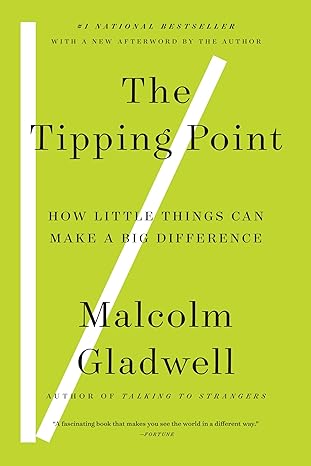
I think that the little minutia pieces that people ignore are far more important than the big “Hallelujah. Amen. I’m going to train for a marathon.” They go hardcore, and they hurt their knees and their ankles. Then they get the marathon done, stop doing it, and fall back into old habits. I’d much rather just say, “Every day I’m going to go on, I’m going to walk to the end of the block, and if it ends up being more than that, it will.” These little incremental improvements that he does regularly on a day-to-day basis, it was, for me, it was like, “Okay, everything that I do in my life, I want to do things that I’m willing to do every day for the rest of my life.”
Not that I won’t do something big like a marathon, but that’s not the goalpost. The goalpost is simply to adopt good, healthy habits for my business and for my family that I can do every day for the rest of my life. It sure does simplify things. Those little things add up to very big things. Everybody overestimates what they can do in a year but underestimates what they can do in a decade. Those things you do in a decade are all about pushing a little bit forward every single day, consistently.
The old adage is that what gets measured gets managed, and it gets misattributed. That quote is from Peter Drucker. But I do believe that is a true concept. So if you’re measuring what you’re doing and not just kind of eyeballing it, then you can see that you’re succeeding or that you’re making progress. And if you don’t, then you’re just kind of flying blind.
I’m a visual person, a data-driven person. That was the constant glucose monitor that was eye-opening for me. It was because I made the connection between food and how my body reacted to food. I could actually see how there was a spike and a drop-off, and I understood what that did to my cravings when it dropped too fast. There was so much data in there that I just didn’t know before. Once I saw it, I couldn’t go back the other way.
What other metrics are you measuring, or did you measure when you were working on weight loss and improving your overall health? Were you tracking HRV, sleep scores, that sort of stuff?
I have the Oura Ring, Apple Watch, and the Eight Sleep mattress. I’ve got lots and lots of data points. I also have a concierge doctor who does blood testing on me probably every other month. We test to see where all my levels are at to make sure that we keep them balanced. I got quite a bit of data to work off of. And it was before I spent a lot of my life just like, okay, well, if I want to be healthy, I’m going to go to the gym, and I’m going to throw a bunch of weight around.
Those things that you do in a decade are all about pushing a little bit forward every single day, consistently.
By doing that, I wasn’t watching my diet and throwing too much weight around. I probably wasn’t getting enough protein. I was hungry all the time. I ate a lot. I ate the wrong things, and so I was overweight. Because I wasn’t nourishing my body properly, I was injuring myself. And so it would be ups and downs to go to the gym. So I was cycling basically a yo-yo dieter, which wasn’t working for me, but that was the only way that I knew, so I went with that. It was actually one of the shifts that I made.
I said, “Well, if the problem is my appetite, and I like to eat food so much, then why don’t I just focus all my energy on that and manage my appetite?” If going to the gym and throwing a bunch of weight around makes me really heavy, I’m not going to do that. Running doesn’t make me hungry, I’ll do that. Pull-ups and push-ups don’t make me hungry, I’ll do that. And so it was always like looking at those things that made my body stronger and didn’t feed my cravings. And I think I finally figured it out. It just took 47 years to get there.
Are there any particular biohacks, maybe stuff that you learned from, I don’t know, Dave Asprey or somebody who is a big innovator in your regimen? Like infrared saunas, cold plunges, or wearable devices. What’s the secret weapon?
I’ve actually been doing the cold plunging for many, many years. I think I first started in 2014 at a Korean spa and would do the solenoid cold plunge there. Then I moved to Colorado and had a cold plunge in the spring-fed ground. And so, during the wintertime, I would have to go out there with a sledgehammer and break through the three inches of ice to be able to climb inside of it.
When I moved back to Los Angeles, you couldn’t get cold water. Now, I have a walled tent set up in my backyard, and inside the tent, I have an infrared sauna. I’ve got a cold plunge with a pump that keeps that pump at around 39 degrees. I do that at home. Then, when I’m here at the office when I walk to lunch, there’s a place where I go, and I stop and take a cold plunge in the sauna there every day at lunchtime. So those have been really good for me. I know it’s become very cliche, the cold plunge thing, but for me, it’s just one of those things that ground me.

Have you noticed in the metrics that you measure some major improvement because you do the cold plunging in the sauna?
Interestingly, one of the things about the cold plunge is that it gets me very in touch with my body. If I get into the cold plunge, I find it very difficult. That day, I was almost 100% certain I was catching a cold, or there was something going on inside of me for me to investigate. That’s been really interesting for me. But besides that, a three-minute cold plunge of breathing and being in touch with my body has as much effect on me because I’ve done transcendental meditation before as well.
It has just as much effect on me as a 30-minute meditation session. It’s really effective for me. Between my cold plunging, the next most important thing for me is walking. I walk a lot in the morning. I wake up and walk for 2 miles. At lunchtime, I walk a mile to lunch, then a mile home. In the evening, the family and I walk a couple of miles. And so I get in probably twelve to 15,000 steps a day. And that is largely my meditation. If I don’t do my morning walk, I’m nowhere near as effective throughout the rest of the day.
Haven’t you done transcendental meditation for a while then?
No, I haven’t. It was very effective. It actually had lasting effects on me, but I probably should try to address it again. But I found that just going on walks and doing my other routines seems to have a very similar effect on me.
Cold plunges have really grounded me and got me in touch with my body.
What were some of the lasting effects of your transcendental meditation phase?
I think that I was having problems with letting things go. Transcendental meditation really helped me with that, so, you know. But it was doing 30 minutes in the morning and 30 minutes in the evening. When you have two small kids at home and a wife and everything else going on, it became a little bit burdensome for me, but I stuck with it for about three or four months, and I noticed that if a car cut me off or something, what before, maybe I would really, my blood would boil instead of being angry about an hour later, I’d get worked up, and then 30 seconds later I would sort of return to my baseline, and that seems to have really stuck. I still recover very quickly from irritations as long as I’m doing my walks and all the other things that I do.
There’s this explanation I got from Karen Noe, a famous psychic, about meditation, that that’s listening to God, whereas praying is talking to God. And you need both. You need to have that bi-directional communication with your creator. So, do you see walking as meditation or a way of receiving guidance from the above? Or is it just to calm the nervous system and get you back into parasympathetic?
I think for me, it’s just about being alone, undisturbed, and allowing my mind to do what it wants to do. I know a lot of people are really big on having their morning routines and their systems. Well, when I walk, I do this exactly every time, and I receive it. And I don’t give myself these guidelines. I wake up. When I wake up, I walk. When I walk, I think about what I want to think about. Sometimes, I’m consolidating things in my mind from home, sometimes from work. Sometimes, I just stare off at the trees and watch the birds. I can’t say that I’m overly structured about what the outcome of that walk is going to be, but I do know that if I don’t go on a walk, my day goes very differently.
Are you journaling at different points during the day as well? Like taking the stuff that’s coming into your mind and the stuff that you’re processing or working through and putting that down on paper or electronically, or you just kind of not do that.
I think that I was having problems with letting things go. Transcendental meditation really helped me with that.
If something interesting enough comes up, I’ll pull the phone out and maybe make a note of it. I went on a solo backpacking trip for a few days up in Sequoia National Trip Park a couple of weeks ago and did some journaling there. That was me alone with my thoughts for 72 hours, and that’s really a powerful time for me. I noticed that when my body is completely exhausted, my mind is very effective. So hike for 15 miles with a 60-pound pack and then sit down. And actually, I jumped in the lake at the top there. There was still some arctic snowmelt. And so jumped in, chilled myself off, and then dried off and did a little bit of journaling there and was able to go pretty deep. But I don’t do that as often as I probably need to.
Do you remember any of the epiphanies that you got from doing that journaling exercise?
Some of them are personal, but I think that there were some things that I realized that I needed to do. Like, I’ll say that I had a little bit of panic around my son turning 13 years old. I thought a lot about that on that trip because I just adore him so much. And being a teenager, that means I’ve only got him for another five years. I really started thinking about what the things that I can do in these last five years with him in the house are to sort of deepen our connection and to sort of take advantage of the time that I have. At some point, I’d seen one of these charts about the amount of time you spend with your kids, and it’s like zero to 18, which is really high up there. After 18, it just really drops off. And it really made me sad. That was a big point of thought.
Any solution, specific solution to that? Are you guys going to go on a world trip together or do anything like that?
That goes to a lot of people’s minds will go immediately to the, like, what’s the next big thing that we’re going to do together? I really believe in this incremental stuff, and I think it’s the little things that happen every day that are really important. It’s really coming home and putting my phone down, you know, seeing if he wants to go play some, you know, we have a pickleball court in our backyard. We’ll play some pickleball together. We have our remote-controlled cars. We go race our cars together. We go on a walk together, and maybe we schedule something, maybe we go to a movie, but really, just being intentional, making sure that every day he knows how important he is to me.
Beautiful. I heard this bit of wisdom from a YouTube video. It was actually a YouTube video of a TV appearance on a local news segment. It was Rabbi Manis Friedman, who’s a very well-known, well-respected rabbi with a big following on YouTube. It was related to Father’s Day because it was a Father’s Day segment.
And the thing that stuck with me was him explaining that the job of the father is not to make the child feel loved. That’s the job of the mother. The job of the father is to make the child feel needed. That stuck with me because if I change my tact with my son, who’s four now, and I still tell him I love him all the time, like, constantly, but that’s not from a place of, what if I don’t?
Then will he know that he’s loved? No, he’s gonna know he’s loved because his mom is 100% on top of that. But he’s just enveloped with love all day, every day. But if I start taking on the responsibility of being the parent and make sure that he feels needed and understands how needed he is in the family, in the world, in the community, at his school, and just his soul mission, his life’s mission, I think that will be a job well done. As a father, I’ve learned a new tidbit.
I really like that, and I think that as a father, I challenge him in a very respectful way. Constantly challenging him, making him think in new ways. My soon-to-be 13-year-old is more of an intellectual. We have a lot of deep conversations about different topics, about the world and the universe or about nature or about whatever. And so it kind of challenged him to think from a different perspective. We homeschooled him as well. I like that reframing, though; it makes him feel needed. I think that’s really important for all men.
When I walk, I think about what I want to think about.
Any plans to take him to some sort of personal development seminar, maybe Tony Robbins or Brendon Burchard or something that will be really above and beyond what kids normally get exposed to? I know you’re homeschooling, so it gives you a lot of leeway to work that into the regular curriculum, but I’m curious if you have any plans for a big event like that.
I think he’s been a little on the young side. Honestly, since he was probably five or six years old, I’ve brought him to business meetings, and he handles himself very well. I wanted him to see that part of what I do when I go away during the daytime and so he’s very familiar. I don’t think he can go this year to the annual conference for Genius Network, but I would like to bring him next year.
There’s the leap program, which I think is very cool in Los Angeles. I’d probably like to get him into Leap next year. I don’t know about any other ones. I’d be very open to any of that. Anything that just shocks his system and makes him think about the world in a different way, I’d be really interested in doing.
I’ve taken my adult daughters, three of them, to Unleash the Power Within seminars. That’s four days with Tony Robbins. On the first day and the night, you are actually walking on the 2000-degree hot coals and your bare feet. And they did it. They all did it. Once you do that, you realize that you put a lot of barriers, boundaries, and limitations on yourself. They’re a fallacy, and they’re not real. They’re illusions.
That’s a great idea. I would definitely be open to that. I probably will do that—anything to challenge. We’ve done a lot of talking around. I tell them I walk around the world today, and I see a lot of people who don’t seem to have ever really become adults. I see 30-year-old men who behave like children. I’ve decided to try to figure out what would be a really good rite of passage for him.
We’ve explored all kinds of different ideas, even just dropping him into the wilderness for a few days with nothing but water and seeing how we would do. But I feel like there has to be some sort of delineation, and I’ve included him in that process. We’ve been talking about it for years, and so we’ve got a few different plans for what we’re going to do. We just haven’t settled on one yet.
Once he’s grown up and maybe going to college, something I’ve heard that was really good, really empowering and life-changing is called Semester at Sea, where the kid for, let’s say, their first semester at college is going on a cruise for the entire semester. They stop in these different places in the world to give back, volunteer, help teach, train cleanup, and do whatever they want in these different areas.
I think I’ve heard about that. Actually, we have. Eddie has traveled much of the world. We spent quite a bit of time in Ecuador, Colombia, Medellin, and Bogota. At one time, my son and I met with Roberto Escobar, Pablo Escobar’s brother. Had a pretty lively conversation. We spent time in Iceland studying geothermal energy for a couple of weeks. We spent two weeks in Alaska. This has always been under the guise of education. After the first grade, we pulled him out and started homeschooling.
We would spend a month leading up to it, learning about something, about wherever it was that we were going to, and then we would hit the ground and connect the dots. We did, you know, go to Hamilton and then to New York and Washington, DC, and saw Hamilton’s signature and then Eliza’s gravestone in New York City. Stuff like that, for him, just brought it all to life. He’s got an education that is pretty unmatched by what it would have been had we left him in school.
That’s impressive. Hats off to you for that.
I think one of the things we were, he was in public school, and here I’m an entrepreneur, my wife works for us. So, entrepreneurs, we think of things very differently. It felt almost hypocritical to leave my son sitting in this system that was very non-entrepreneurial. That was this sort of archaic system where it’s kind of setting them up for. We don’t really know what for.
Conspiracy theories around what they’re being set up for, whatever that is.
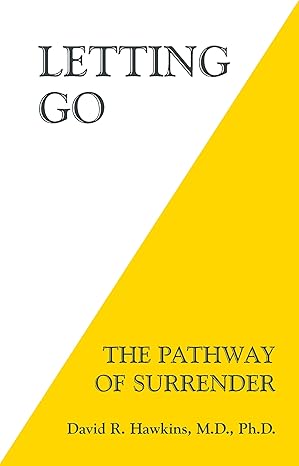
But if I’m gonna say, I can’t have a traditional employer, so I’m gonna set up my own life, and I’m gonna structure my life the way that I want to on my own terms, but then I’m gonna take my son and put him in someone else’s structure that they designed for him felt very hypocritical to me. So, taking him out and homeschooling him aligned much more with the way that I live my life. Hopefully, he’ll understand that he can create his own life in whatever way he wants to without being pigeonholed into a little box, which was what it felt like they were doing between kindergarten and then first grade. It kind of doesn’t feel like an environment that’s going to nourish him.
One book that popped into my mind is, I think, a great addition to the books that you’ve read. Perhaps you’ve already read it, but it’s called Letting Go by Dr. David Hawkins. What are some of the spiritual kinds of lessons or connections or things that you want to share that have come about because of you being a parent, because of the near-death experience and because of the cancer scare, or because of business challenges and things like that? What would be some things that you’d like to share with our listeners?
I don’t know if it’s spiritual or not. After being 19 years old, I was combat-deployed and learned very early about people and that all people basically want the same thing. We want to be happy, and we want to feel safe. That has always really stuck with me. I have a pretty deep respect for people of all kinds. Spirituality is a little bit different for me, but I feel like I’m connected to the world in a way.
Every time that I’ve had something that was like a near-death experience, cancer or otherwise, I feel more connected. Not necessarily just to my children or my family, but to everyone and have a deeper understanding. I mean, you’re a parent, so you understand the fact that you’re just a steward to these little humans. They’re just a part of the mass population. And so we just kind of instill what we can in them and then set them free. I don’t have a good answer because spirituality is probably not a journey that I’ve taken.
But the thing is, we all have different definitions of these kinds of words. And one thing I bet you can relate to is that this is an example for me. This is spiritual. I was guided; I felt guided to contact my father. I don’t have a super close relationship with him. I mean, we’re friendly, and I do very much care for him and appreciate him, but I don’t remember him ever saying I love you when I was growing up, and he wasn’t in my life really much at all through my childhood. And yet, I wanted to follow through on this nudge that I got from above to give him a call and make sure he knew that I forgave him and that I love him.
That also my sense about it is that my mother, who has passed, also forgives him. I’m like, “Okay, I’m going to make this uncomfortable call.” As soon as I hit the button to make the call, at that very second, he sends a text message to me, which is unheard of because he probably texts me a few times a year. We’re all connected. As you said, we’re connected. We’re connected not just to our kids but to everyone. And that was pretty special.

I had an experience. I’ve not been a religious person in my life, but I had an experience with a 5-MeO-DMT. I’d never done anything before, any sort of psychedelic before. After coming out of that experience, I just realized that there’s something out there that orchestrates things, and it’s probably much larger than my mind could comprehend, and it is everywhere. I’m not going to try to understand it, but I think it opened my mind to a larger world and connectedness, which was really powerful for me.
How does that apply to the business world? Because you’ve got successful businesses, you’ve got investments, help kind of mentor or coach some people, I’m guessing, on how to grow their business, whether it’s just friends who, you know, through a Genius Network or another mastermind or perhaps their official mentees or something. But I’m sure you’re spreading your wisdom and inspiration out into the world, in the business world. So how does this knowingness that everything is connected and that you’re connected to it flow through to that business world?
One of the best things I ever did was, at 38 years old, I sold my business. I had sold businesses before, but they were just offshoots of my main business. I still had a thing, and I sold it. And I realized that I didn’t feel like I had mastered the business world to an extent and didn’t have a purpose. Actually, I went into quite a bit of depression. That’s after that when I started another business and another one. But there was something about the 20 years of business knowledge I gained that I just kind of still had inside of me that I wanted to give back. I’ve done a lot of mentoring. I spend a lot of time with an organization called Defy Ventures.
As a matter of fact, I was attached, and he stayed in prison all day helping mentor guys getting ready to get out of prison to leverage their unique abilities into a business. They’re entrepreneurs in training, and they call it EITs. I’ll also go to the halfway houses and work with them there, getting them ready with soft job skills after they get out. I have a book club where we go through a lot of different books that can help them.
I do a lot of mentoring there. I have some one-on-one mentoring that I do and then also with young entrepreneurs and veterans, of course, being a veteran myself. And so that’s where I get my purpose now. I just realized that the whole retirement thing was a scam after I sold the business. It made me really sad that a lot of people go for 65 years at a job thinking someday they’re going to retire and just sit on the beach somewhere, go golfing for the rest of their lives. Most of them go into depression and feel lost. It was a lesson that I am so grateful to have learned. I have a purpose. Everything in the world has a purpose, whether it’s a deer, a mosquito or a hammer. Everything has a purpose. And so to think that I simply just was going to retire and not have to have a purpose was probably foolish. It was a great lesson for me that I’ll carry with me until my last day.
It’s funny that you mentioned mosquitoes because it reminds me of something I learned: that these different creatures are just messengers. So I became acutely aware after my second spiritual awakening and saw the matrix and all that, that if a mosquito is buzzing me in the middle of the night, that’s not random, that’s not an accident. There’s a purpose there. I would tune in and find out what I’m supposed to do. Am I supposed to get up? Am I supposed to go and kill it, or what? What am I supposed to do?
Everything in the world has a purpose.
On several occasions, I was just floored by it. It was the perfect exact moment I needed to wake up because my wife was awake in the other room. Our baby at the time, really young, I’m probably a year old or something, was, I don’t know, fussing, and she was distraught or really tired or something. And here I come to the rescue. I was sleeping in another room, but the mosquito woke me up at exactly the time I needed to wake up. It’s like it’s. Again, we’re all connected: you, me, and the mosquito.
My son just built a Paludarium in our living room. Paludarium is where it’s like a fish tank but has some water, and he got these little freshwater crabs, and it’s this really cool thing that he built. But the unexpected consequence was that the mosquitoes got in there and actually started breeding inside of it. Now, he’s basically got a mosquito breeder inside of her house that we’re battling against trying to get rid of. That’s why I thought of mosquitoes.
That’s funny. I forget what you add to the water; it makes it impossible for them to breed there. I think it was like a TikTok, YouTube, or Instagram video. I don’t watch TikTok, but it’s like one of those short-type things, apple cider vinegar or something. You put that in the water.
Maybe I should do the research because we went to the pet store and bought something. It was like you put a drop of it in there, and it’s supposed to make it so that they don’t breathe. Well, my son, being a twelve-year-old diligent child, got on the Internet and Googled every single ingredient because he was worried about the health of his crabs. He found out that some of those ingredients were really dangerous, and he did not want to put them in the same tank. I was like, “Okay, let’s find another solution.” In the meantime, I just go in there every day and smush the larvae with my finger until he figures out what he’s going to do.
Reframe everything that happened in your life as your fault, and it will empower you to fix those things. Share on XThere’s always that way. There’s always brute force. That’s awesome. Well, it’s a very dedicated dad. Good job. I know we’re getting close to time, but I wanted to circle back for just a minute to discuss this defi venture and how you’re helping prisoners and inmates. This is a very unusual thing for most people. Like, “Oh, I don’t have any problem going to volunteer at the soup kitchen or whatever,” but it’s a rare person who’s willing to work with seemingly hardened criminals. What was it that drew you to that? Or what synchronicity put you on the path of that nonprofit? Or some person who maybe was inspiring to you, like an ex-convict or something? I don’t know. I’m just curious about the story behind that.
I’ve done some mentoring with veterans, but it’s actually pretty hard to get involved. A lot of veteran organizations, whereas this organization. I went to do a volunteer session with them, and I was impressed by what they were doing. And these guys, the majority of them are, well, first off, I’m a person that leveraged my unique abilities into a business. When I got into the military, I had nothing. I built a very good-sized business based on brute force and learned a lot of lessons along the way. I could save these guys ten years after they’ve given up 10 or 20 years. That could be useful.
The recidivism rate of the guys who finished this EIT program is down to almost zero. It’s incredible. As a matter of fact, I had another guy that was a volunteer. He was in prison for 26 years. He got out after he went through the Defy program. He is now in Watts. He has a bakery. He’s selling baked goods to all these other stores. He caters for events. He also taught the stuff he learned and defied some of his neighbors. Some of his neighbors now have started their own businesses. There’s this cascading effect, which is a way that I feel like I can contribute to it.
If I could help these guys have a head start and be an advocate for them and be able to leverage these things so that maybe they won’t go back into prison or maybe they won’t commit another crime, that, to me, is quite empowering. A lot of them, I’ll say most of them, were young men under 25 years old, with lots of testosterone, no guidance, no means to protect themselves, and the desire to belong. So they went in a gang, and then they did something stupid, and then they spent a decade in prison or two decades in prison.
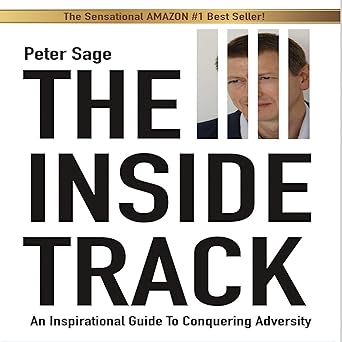
The prefrontal cortex has now developed, and testosterone has calmed down. They’ve seen some examples where they picked up some books and did some reading. So now they’re ready to redirect their energy. It’s sad for me to see these young guys go away because I was a wild man when I was young. I went to jail a couple of times for being crazy or drinking or fighting or whatever, but I never got caught doing something stupid enough to get myself locked up for a long period of time. And so it’s somewhere that I feel that my talent and abilities are useful. I think that I want to feel useful in life.
There’s a book I’m reading, and I just happened to start reading. It’s really profound. It’s by Peter Sage, and it’s called The Inside Track. This guy ended up in prison for six months and the worst, toughest prison in the UK called Pentonville. And it was completely out of the blue. He got put there for contempt of court by a judge in a civil matter. After those six months, he left with no criminal record.
But in the time he spent in prison, he wrote eleven letters. He made all these changes to the prison system and helped all the people inside get hope and a sense of purpose. He was a really big coach in personal development and everything. He applied all of the principles that he had learned and that he had applied with his clients in the prison. And he wrote all of this down in the letters that he wrote. And this is a book of all those letters compiled together. It’s really profound. I highly recommend it.
I’ll read it. That’s amazing. I love these stories. Listen, I like to champion the underdog. There are a lot of people who just didn’t have it quite as fortunate as we did, and we need to help lift those people if we want to have a better society. So that’s what I hope to do.
Well, you’re well on your way. And thank you for being a light in the world. And I really enjoy knowing you and having you and my circle of friends and colleagues. So thank you.
Likewise, Stephan. It’s been fun.
Thank you, listener. Now, be a light in the world, and we’ll catch you in the next episode. I’m your host. In the meantime, have a fantastic week. This is Stephan Spencer signing off.
Important Links
Connect with Ryan Crownholm
Apps and Tools
Books
Businesses/Organizations
People
Previous Marketing Speak Episode
Previous Get Yourself Optimized Episodes

